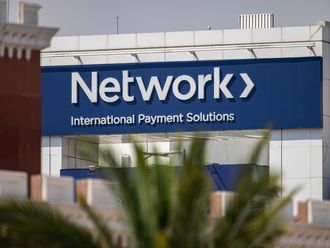“I’m sorry, your card was declined.”
Cardholders don’t like to hear those off-putting words, especially when they are certain that the transaction is genuine, or they have not maxed out their credit limit.
Unfortunately, one in four people surveyed in the UAE has had their credit or debit card payment rejected because the bank incorrectly flagged the transaction as fraudulent.
Seven per cent of respondents, representing more than half a million people, had experienced this three times or more in the past year, according to a survey released on Sunday by Alaric, a supplier of fraud prevention and payment processing products.
It’s not that banks are out to embarrass their customers. With card fraud losses rising every year, financial institutions are tightening their anti-fraud systems to fend off a growing number of scammers stealing cardholder information and making illegal transactions.
“When a bank blocks a transaction incorrectly, because it thinks it is fraudulent, but in fact that transaction is genuine, this is called a false positive. These false positives are expensive for the bank – both in terms of customer satisfaction, and the process involved in having to remedy the mistake,” said Tausif Ahmed, director for Middle East at Alaric, one of the participants in the Cards & Payments Middle East that opens on Tuesday.
Payment card experts said customers themselves can send wrong signals to the bank and trigger a payment decline, particularly when their card spending patterns suddenly change. That’s why cardholders can do their part to avoid false positives, according to David Divitt, principal fraud consultant at Alaric.
For example, when traveling abroad, consumers should inform their bank in advance, so their card providers know that transactions outside their normal spend patterns are more likely to be genuine. It is also a good idea to use the card regularly, so the bank knows what sorts of things are normally bought.
“Some card issuers offer the facility for you to tell them in advance if you are going to make a high-value purchase, for example electronic items or jewellery, so take advantage of this service if it is available,” Divitt said.
“Keep your contact details up to date with the bank so they can contact you immediately if they do encounter a suspicious transaction, and so they know if you have moved cities, for example, and therefore your card use is going to change.”











